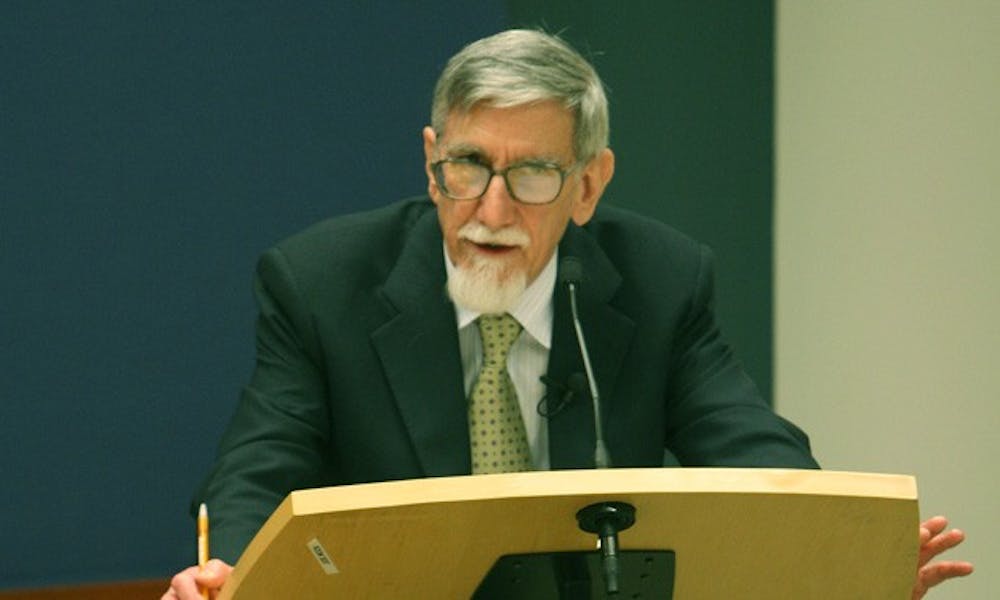With the Iraq war in the end stages, Columbia professor Robert Jervis provided insight into the conflict and the pitfalls of analyzing war itself.
Jervis, the Adlai E. Stevenson professor of International Politics at Columbia University, shared findings from his recent book “Why Intelligence Fails: Lessons from the Iranian Revolution and the Iraq War” in a speech at the School of Law Thursday.
The speech focused on the complicated task of writing about a war after its conclusion. Jervis said it is clear that the Iraq war has been a failure because many “postmortems” have already been written about the conflict.
“We almost never do postmortems on successes,” he said. “We want causation. We need to compare failures and successes.”
Jervis said writing about war after the fact is problematic because authors must rely on sources who struggle to recall what they thought in a moment of great stress. The accounts are also often written with the expectation of finding the “silver bullet,” he said.
Jervis said he realized just how touchy postmortems are when he was interviewing analysts about went wrong in Iran.
“They were on edge and nervous,” he said. “I then realized that while I have tenure, they don’t and could get fired for what I say.”
Jervis said that of the major questions about the Iraq war, only a fraction could be answered by intelligence reports. Intelligence produced papers predicting that reconstruction “was going to be hard” and eventually concluded that there were not necessarily connections between Saddam Hussein and al Qaeda, he said.
But intelligence failed to answer questions about the status of Iraq’s weapons of mass destruction programs and whether the situation would deteriorate if Saddam Hussein had nuclear weapons, Jervis noted. Yet although former President George W. Bush was widely blamed for the lag in intelligence, Jervis conceded that it probably was not his fault.
Jervis said the intelligence community was largely passive while Bush was deciding to go to war.
“I suspect that part of the reason why is that they knew it was hopeless,” he said. “Regardless, it’s totally unacceptable.”
Erin Daniel, a staff assistant at the Law School, said Jervis was selected to speak by the Center for International and Comparative Law because his book was a “hot topic.”
Nan Yang, an exchange student from Peking University who is now at Duke Law, said she was glad she attended the speech.
“I don’t come from the United States and am interested in learning about the different perspectives on international affairs,” she said. “I wanted to have an idea of how other people see the Iraq war.”
Despite the solemn subject matter, Jervis kept the tone light.
“I’d never heard students laugh so loud at a lunchtime lecture,” said Cassie Webster, a third-year law student.
Get The Chronicle straight to your inbox
Signup for our weekly newsletter. Cancel at any time.

